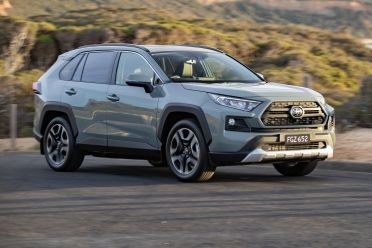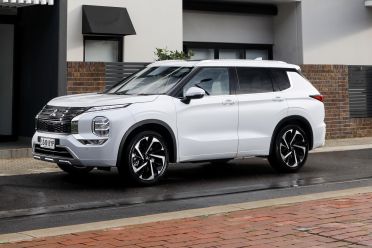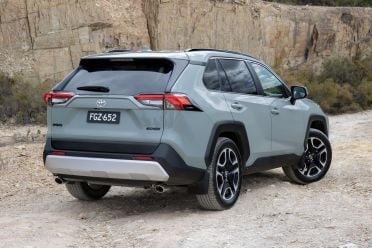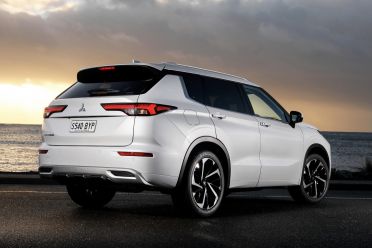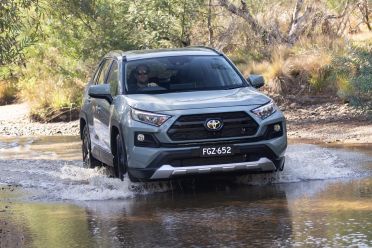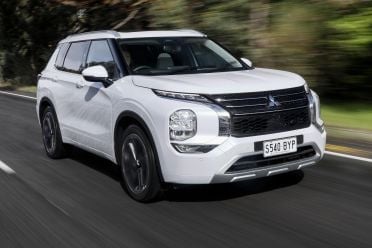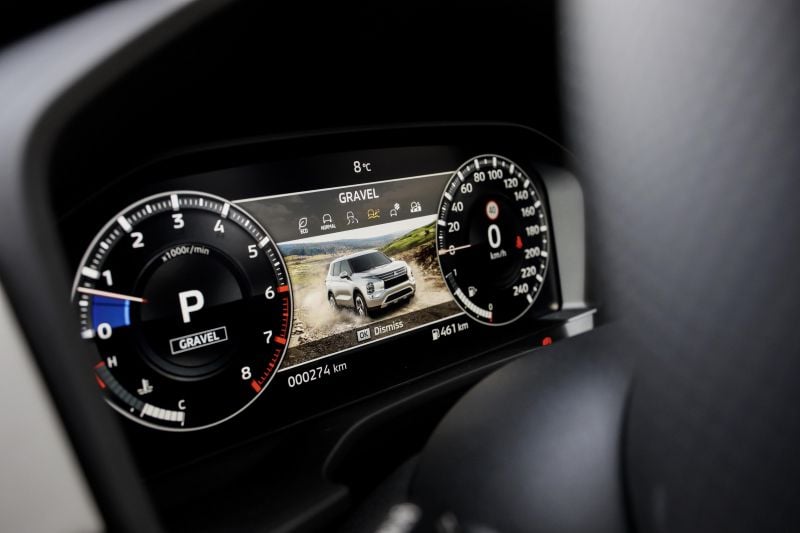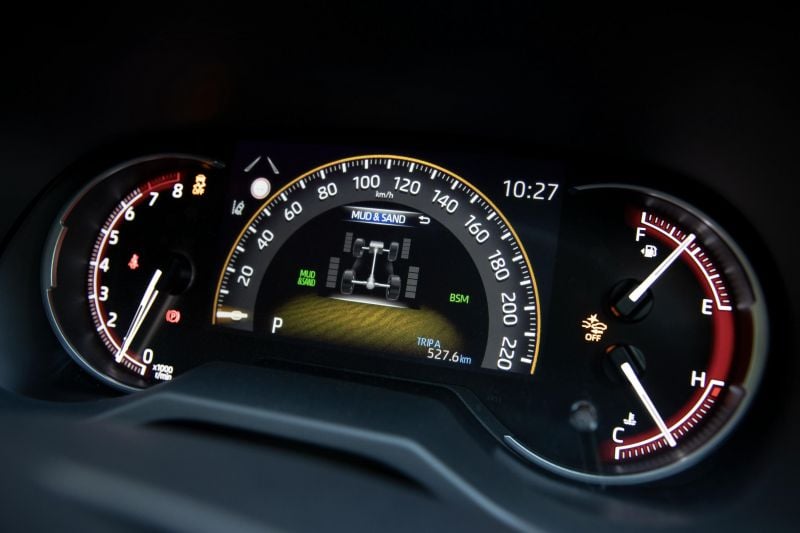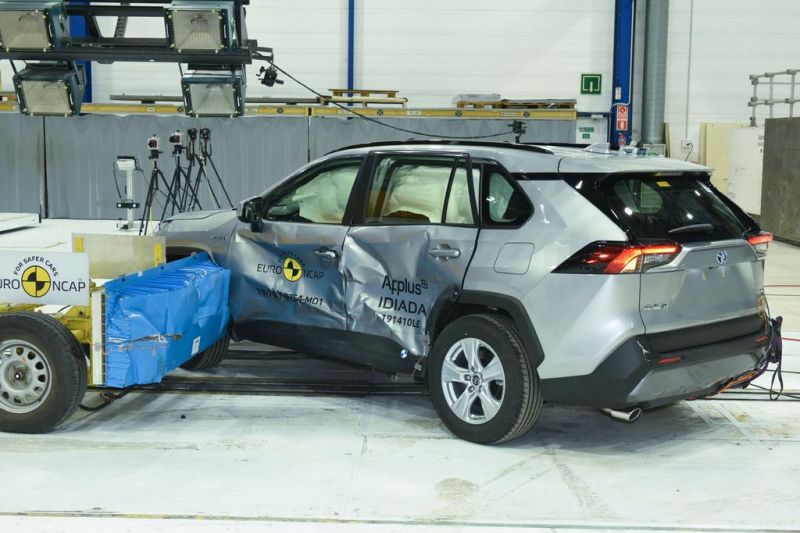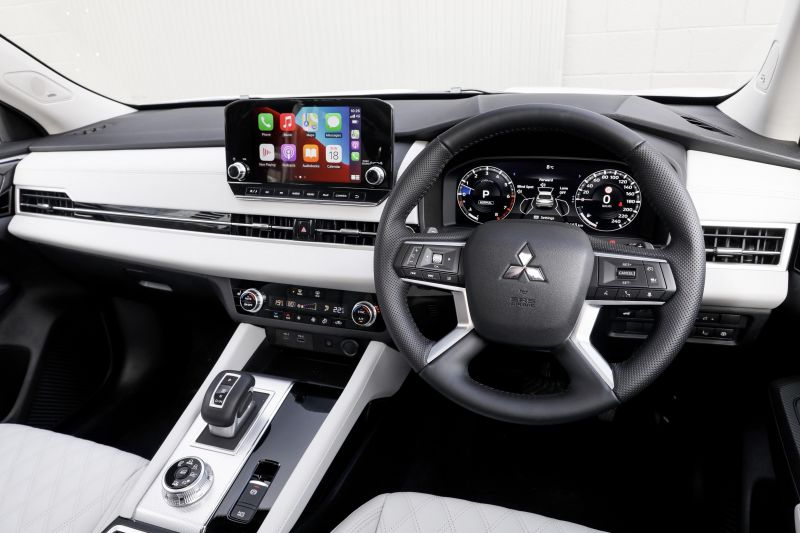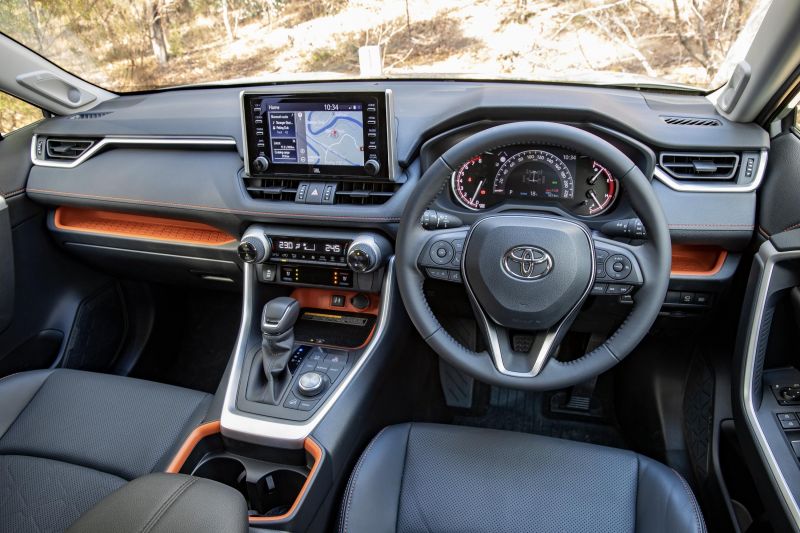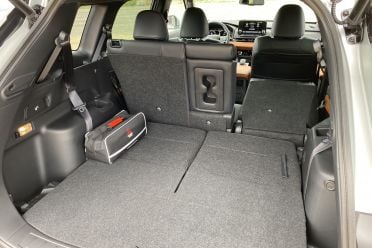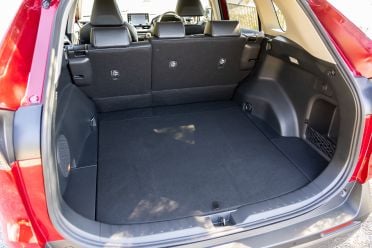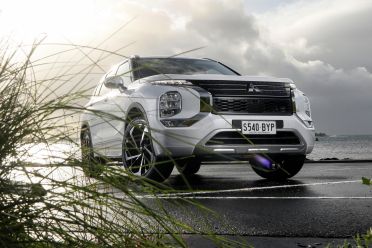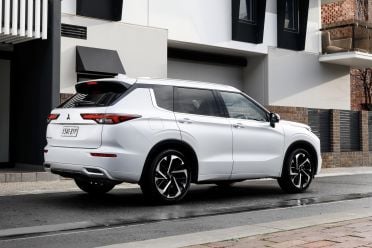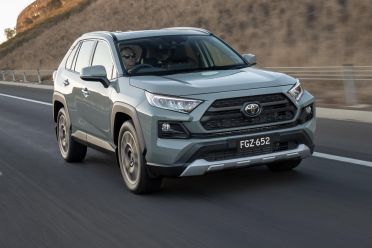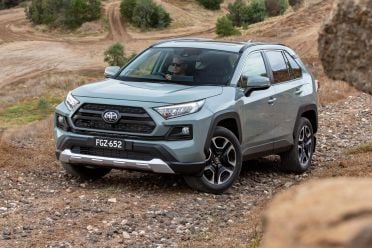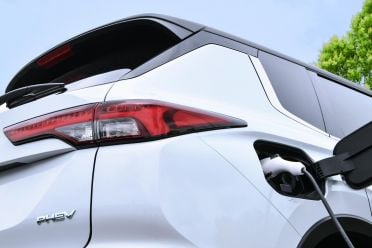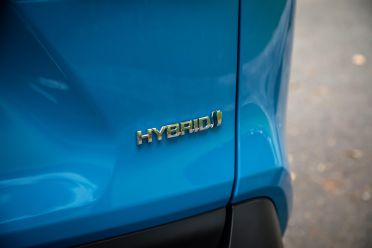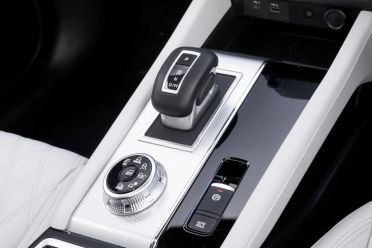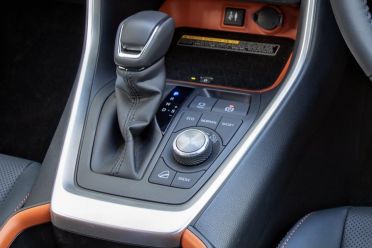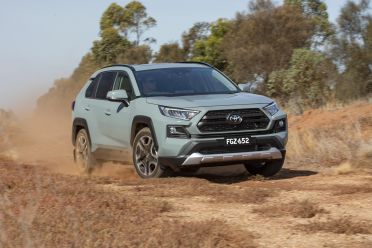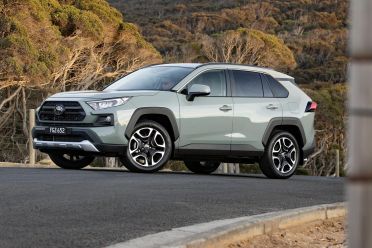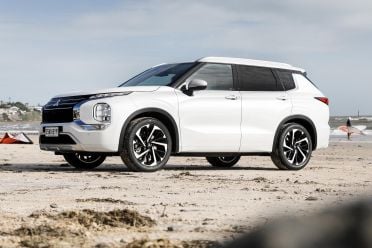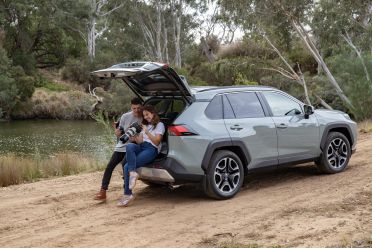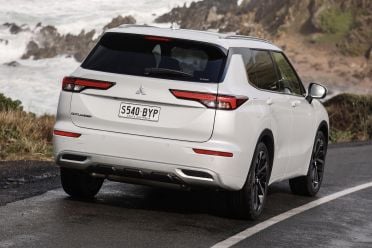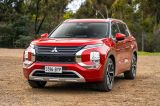Mitsubishi Australia will launch a new-generation Outlander in November 2021. It promises to be a significant step up over the old model, which sold predominately based on sharp pricing.
But if the repositioned new Outlander wants to succeed, it’ll need to outgun the top-selling SUV in the country: Toyota’s RAV4.
Of course, we’ll bring you real-world reviews of the new Outlander once it launches and we can drive again, but for now let’s look at how the specs compare.
How much?
Rather than focusing on the entire range, we’ll look at two highly specified variants that line up particularly closely.
The Mitsubishi Outlander comes in cheaper ES, LS and Aspire grades but we’re looking at the luxurious Exceed variant that costs $47,990 before on-road costs.
The Toyota RAV4 comes in GX, GXL and Cruiser forms in petrol or hybrid forms, as well as a petrol-only Edge range-topping variant that asks for $48,916 plus on-roads.
In terms of running gear and price this last variant is in fact the best car to compare to the new Outlander to gauge how it stacks up.
We will be sure to detail alternative engine choices, namely the bigger-selling (and also heavily supply-restricted) RAV4 Hybrid, and yet-to-arrive plug-in hybrid Outlander which might themselves be a good comparo down the track.
- Mitsubishi Outlander Exceed: $47,990*
- Toyota RAV4 Edge: $48,915*
* Before stamp duty, rego and dealer delivery
What do you get?
Gee these two circa $50k medium SUVs have similar spec sheets.
Common features to both are big alloy wheels (19-inch on the Toyota and 20-inch on the Mitsubishi), dusk-sensing LED headlights, a sunroof, privacy glass, rain-sensing wipers, roof rails, a powered tailgate, and parking sensors at both ends.
Both have a sunroof over front occupants heads. The Mitsubishi’s sunroof is panoramic (longer) as standard, whereas this extended glass is an option on the Toyota.
MORE: 2022 Mitsubishi Outlander price and specs
MORE: 2021 Toyota RAV4 price and specs
| Mitsubishi Outlander | Toyota RAV4 | |
|---|---|---|
| Variant | Exceed | Edge |
| Wheels | 20-inch | 19-inch |
| LED headlights | Standard | Standard |
| Front seat sunroof | Standard | Standard |
| Panoramic sunroof | Standard | Optional |
| Privacy glass | Standard | Standard |
| Rain-sensing wipers | Standard | Standard |
| Roof rails | Standard | Standard |
| Powered tailgate | Standard | Standard |
| Parking sensors | Front & rear | Front & rear |
It’s a fairly similar story on the inside.
Both come with proximity key access, leather or vegan leather trims, heated front seats, driver-side memory seat, 360-degree parking cameras, uprated branded sound systems, a wireless phone charger, front and rear USB points, and Apple CarPlay/Android Auto.
The Mitsubishi’s unique features over the RAV4 include a powered front-passenger seat with memory presets, separate temperature controls for back-seat passengers, a fully-digital instrument display, and a head-up display.
In response the Toyota alone offer ventilated front seats and proprietary satellite-navigation with SUNA live traffic updates.
| Mitsubishi Outlander | Toyota RAV4 | |
|---|---|---|
| Variant | Exceed | Edge |
| Proximity key | Standard | Standard |
| Seat trim | Leather | Eco leather |
| Heated seats | Both front | Both front |
| Cooled seats | No | Both front |
| Memory seats | Both front | Driver |
| Climate control | Three zones | Two zones |
| Instruments | 12.3-inch | 7.0-inch |
| Head-up disp. | Standard | No |
| Touchscreen | 9.0-inch | 8.0-inch |
| Sat-nav | No | Standard |
| USB points | Front & rear | Front & rear |
| Apple CarPlay | Wireless | Wired |
| Android Auto | Wired | Wired |
| Audio system | Bose | JBL |
| Wireless charger | Standard | Standard |
| Camera | 360 degree | 360 degree |
Are they safe?
Both come fitted with all the requisite safety features including front, front side/thorax, full curtain, and driver’s knee airbags. The Mitsubishi adds a front-centre airbag for side-on-impact head collisions.
Both come with forward autonomous emergency braking (AEB) that in the right conditions can detect cars, pedestrians and cyclists. The Mitsubishi further adds AEB in reverse.
Both also get adaptive cruise control, blind-spot monitoring, rear-cross traffic alert, and traffic-sign recognition. The Mitsubishi and Toyota both have a lane-keeping aid, but the Toyota’s uses steering corrections and centres the car where possible.
The Outlander is yet to be crash-tested by ANCAP, whereas the RAV4 scored the maximum five stars in 2019.
| Mitsubishi Outlander | Toyota RAV4 | |
|---|---|---|
| Variant | Exceed | Edge |
| Airbags | Eight | Seven |
| Forward AEB | Car, pedestrian, cyclist, junction | Car, pedestrian, and cyclist |
| Reverse AEB | Standard | No |
| Cruise control | Active | Active |
| Lane assist | Steering wheel vibrations, selective wheel braking | Steering |
| Blind-spot monitor | Standard | Standard |
| Cross-traffic alert | Rear | Rear |
| Traffic sign camera | Standard | Standard |
What are they like inside?
The biggest immediate difference is the fact the Outlander has a third row of seats suitable for smaller occupants and occasional use. It’s almost 10cm longer than the five-seat Toyota, which helps fit them in.
The Mitsubishi’s touchscreen is larger (9.0-inch versus 8.0-inch), and its digital instruments more eye-catching, though in practise that doesn’t necessarily mean better or quicker-loading.
Both have wireless chargers below the ventilation controls ahead of gear sticks (stylish shift-by-wire in the Outlander), electric park brakes, and chunky dials to change the AWD modes.
Both also offer buttons and knobs to control various A/C and infotainment functions, and plenty of soft-touch materials to impart an upscale feel.
The Outlander Exceed comes with either light or dark leather trims, while the RAV4 Edge can be had with black Softex with orange accents as pictured or brown and light grey Softex with orange bits.
The Mitsubishi’s occupancy area (according to factory claims) measures 2460mm long, 1504mm wide, and 1240mm tall. The RAV4 cabin measures 1890mm long (only two seating rows remember), 1515mm wide and 1230mm tall.
Mitsubishi is yet to announce boot capacities. For context the RAV4 stows 580 litres with five seats in use.
| Mitsubishi Outlander | Toyota RAV4 | |
|---|---|---|
| Length | 4710mm | 4615mm |
| Width | 1862mm | 1865mm |
| Height | 1748mm | 1690mm |
| Wheelbase | 2706mm | 2690mm |
| Kerb weight | N/A | 1705kg |
| Seats | Seven | Five |
What’s under the bonnet?
Both run 2.5-litre naturally-aspirated four-cylinder petrol engines.
The Mitsubishi Outlander’s produces 135kW of power and 245Nm of torque, uses a claimed (ADR combined cycle) 8.1 litres of fuel per 100km, and is mated to a CVT auto with eight preset gear ratios like a traditional auto.
The Toyota RAV4 Edge’s 2.5-litre engine makes 152kW of power and 243Nm of torque, uses a claimed 7.5L/100km, and runs an eight-speed automatic.
There are other engine choices to be considered.
The new Outlander plug-in hybrid (PHEV) will arrive in early 2022, and while full details are still under wraps it’ll offer more system power and greater electric-only range than the outgoing model’s 50-odd kilometres.
While the RAV4 Edge only gets one engine, the similarly specified RAV4 Cruiser comes with a 163kW hybrid setup using an electric rear-axle drive motor that slashes fuel consumption by more than 50 per cent to 4.8L/100km.
Unlike the Mitsubishi which charges its batteries using regenerative braking and an external charging point, the Toyota only charges using the former.
It doesn’t really have a pure EV mode to speak of except at crawling speeds, but is a cheaper option.
| Mitsubishi Outlander | Toyota RAV4 | |
|---|---|---|
| Fuel type | Petrol | Petrol |
| Displacement | 2.5-litre | 2.5-litre |
| Power | 135kW | 152kW |
| Torque | 245Nm | 243Nm |
| Fuel economy | 8.1L/100km | 7.5L/100km |
| Transmission | CVT with eight steps | Eight-speed auto |
| Drive type | AWD on-demand | AWD on-demand |
| Towing capacity | N/A | 1500kg |
How do they drive?
They’re very similar mechanical packages really.
The Outlander shares its bones with the new Nissan X-Trail (yet to launch here). The Renault-Nissan-Mitsubishi Alliance platform has better torsional rigidity than the old car’s, and more lightweight aluminium components.
Exceed variants come standard with on-demand all-wheel drive (AWD), using Mitsubishi’s nifty Super All-Wheel Control system with quicker hydraulic centre coupling, and individual front- and rear-wheel brake control to sharpen handling.
The Toyota RAV4 sits on Toyota’s modular TNGA architecture shared in large part with the Camry. It’s among the most balanced dynamic performers in the class, in terms of ride comfort and handling agility.
While RAV4 Hybrid uses twin-motor AWD, the petrol Edge uses a more conventional driveshaft with coupling that diverts torque rearward when needed. It also has dynamic torque-vectoring that controls allocations of power to each wheel precisely.
Both the Toyota and Mitsubishi offer various software modes that configure things like throttle mapping and ESP response to suit specific low-traction surfaces.
I can’t wait to drive this pair back-to-back.
| Mitsubishi Outlander | Toyota RAV4 | |
|---|---|---|
| Power steering | Electric | Electric |
| Lock-to-lock | 2.6 turns | 2.76 turns |
| Front suspension | MacPherson strut | MacPherson strut |
| Rear suspension | Multi-link | Multi-link |
| Front brakes | Ventilated discs | Ventilated discs |
| Rear brakes | Ventilated discs | Solid disc |
| Off-roading modes | Gravel, snow, mud | Gravel, snow, mud |
Cost of ownership
The Outlander has a five-year/100,000km warranty as standard, but extended to 10 years and 200,000km if you service in the Mitsubishi dealer network using its capped-price service program. Service prices haven’t been revealed yet.
The RAV4 has a five-year/unlimited kilometre warranty, extended to seven years on the engine if you adhere to the service schedule. Servicing is a bargain, with each of the first five visits (annual or 15,000km intervals) capped at $230 a pop.
Early verdict
On paper this new Outlander more than stacks up against the market’s top-selling offer, Toyota’s RAV4.
All the more reason to shortlist it and wait for our proper comparison coming soon.
MORE: 2022 Mitsubishi Outlander review – US media drive
MORE: Everything Mitsubishi Outlander
MORE: Everything Toyota RAV4


